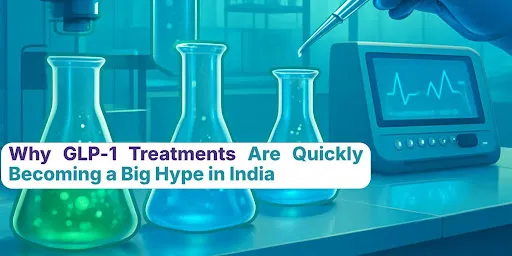Are you ever curious about the future of cancer treatment and how recent advances are shaping it? In the battle against hepatocellular carcinoma (HCC) — a frequent type of liver cancer — scientists and physicians continue to bring in fresh ideas that rekindle hope.
Apatinib, for instance, is one such concept. What exactly is apatinib and what does it do in the fight against liver cancer? This article will attempt to explain these things through targeted therapy and its role in treating HCCs.
What is Apatinib?
Apatinib is classified as a tyrosine kinase inhibitor (TKI). It functions by focusing on particular proteins located in malignant cells responsible for their multiplication and metastasis. The drug stops or slows down cancer development when protein synthesis is stopped thereby providing another way forward for patients diagnosed with advanced stages of HCCs.
The Science Behind Apatinib
Inhibiting the vascular endothelial growth factor receptor-2 (VEGFR-2), which is peculiar only to apatinibs, cuts off blood supply to tumors thus hindering their growth and spread. This inhibition occurs because this specific receptor plays an important role during tumor angiogenesis - a process through which new blood vessels form around malignancies so that they may receive the nourishment always needed.
Clinical Trials Involving Apatinib
Clinical trials help researchers determine whether or not new treatments work effectively while at the same time ensuring patients’ safety.
According to studies conducted so far, apatinib has shown better results than any other drug designed for treating advanced HCCs in terms of prolonging life expectancy rates among victims as well as improving their overall quality of life during this period. Such experiments serve as a bridge between doctors who want more options for those unresponsive towards traditional methods like surgery or chemotherapy alone.
Benefits of Apatinib for HCC Patients
For individuals struggling with HCCs, apatinib has several benefits including:
It is suitable for people who may not do well under normal conditions such as those involving operations or chemotherapeutic interventions.
Being one among several targeted therapies; it usually has fewer side effects hence making it easier tolerated by most patients.
Comparing Apatinib to Other Treatments
In its action against VEGFR-2 receptors alone, apatinib represents an unusual approach within the spectrum of drugs used against hepatic cancers. This specificity allows them to be more selective in their attack and thus potentially cause fewer harmful reactions when compared with other systemic modalities which are more generalized.
Challenges and Considerations
However promising this treatment sounds, there still exist certain challenges like drug resistance and management of adverse events experienced by patients during their therapeutic courses with apatinib. Further investigations need to be done so that we can find ways of enhancing its efficacy while at the same time streamlining these aspects into wider treatment strategies.
Apatinib in Treatment Decision-Making
Choosing an appropriate therapy for hepatocellular carcinoma may be tricky especially now that there is another option called “apatinib”. Doctors find out whether this medicine suits their clients based on factors such as cancer stage; previous treatments given; patient’s overall condition etcetera.
Doctors arrive at decisions concerning what course would work best for every patient, stressing through communication between physicians and those affected thereby highlighting the importance thereof.
Helping Patients Cope Throughout Their Journey With Apatinib
When a patient begins a different treatment like what is called apatinib, it can inject both hope and challenges into their lives. This section of the article discusses the support systems and resources that are needed to help patients go through their treatment with apatinib. From managing side effects to sustaining quality of life, it underscores the need for holistic care in supporting the physical, emotional, and psychological well-being of patients on their journey; thus ensuring them with an enhanced experience and outcome during this period.
The Future of Apatinib and HCC Treatment
The future of HCC treatment, including the role of apatinib, is bright. Ongoing research and clinical trials continue to explore its full potential, looking at how it can be used alone or in combination with other treatments to provide the best patient outcomes.
A Step Forward in HCC Treatment
Apatinib represents a significant step forward in the treatment of hepatocellular carcinoma. As part of a growing arsenal of targeted therapies, it offers hope to patients and doctors alike, providing a new tool in the fight against this challenging disease.
In conclusion, developing targeted therapies like apatinib marks a turning point in the fight against hepatocellular carcinoma. By understanding how apatinib works and continuing to research its benefits and challenges, medical professionals are paving the way for more effective, personalized cancer treatment strategies.
For doctors studying hepatocellular carcinoma, staying informed about the latest advancements in targeted therapy is crucial for providing the best care to patients facing this difficult diagnosis. As we move forward, apatinib and similar treatments will undoubtedly play a key role in transforming the landscape of cancer care, offering new hope and possibilities for those affected by HCC.
Reviewed by







